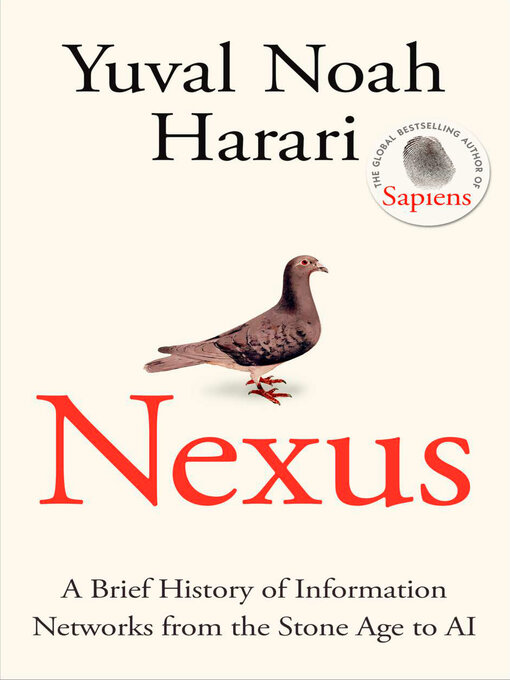For the last 100,000 years, we Sapiens have accumulated enormous power. But despite all our discoveries, inventions, and conquests, we now find ourselves in an existential crisis. The world is on the verge of ecological collapse. Misinformation abounds. And we are rushing headlong into the age of AI—a new information network that threatens to annihilate us. For all that we have accomplished, why are we so self-destructive?
Nexus looks through the long lens of human history to consider how the flow of information has shaped us and our world. Taking us from the Stone Age, through the canonization of the Bible, early modern witch hunts, Stalinism, Nazism, and the resurgence of populism today, Yuval Noah Harari asks us to consider the complex relationship between information and truth, bureaucracy and mythology, wisdom and power. He explores how different societies and political systems throughout history have wielded information to achieve their goals, for good and ill. And he addresses the urgent choices we face as non-human intelligence threatens our very existence.
Information is not the raw material of truth, nor is it a mere weapon. Nexus explores the hopeful middle ground between these extremes, and in doing so, rediscovers our shared humanity.
-
Creators
-
Publisher
-
Release date
September 10, 2024 -
Formats
-
OverDrive Read
- ISBN: 9780771019678
-
EPUB ebook
- ISBN: 9780771019678
- File size: 5758 KB
-
-
Languages
- English
-
Reviews
-
Publisher's Weekly
August 12, 2024
Bestseller Harari (Homo Deus) offers an ambitious but muddled meditation on the past and future of information technology. Positing all human history as a history of information—and defining information as “something that creates new realities”—Harari ends up telling a cautionary tale about the power of stories. He argues that prehistoric humans’ harnessing of information technologies led to the emergence of a new “ of reality”—the realm of shared belief—and that manipulations of this realm via new information technologies account for both advancements in human civilization and sweeping social ills (for example, the ancient invention of the written document led to bureaucracy, while the 20th century’s overabundance of the written document enabled totalitarianism). Harari sees the rise of artificial intelligence as an inflection point, one that leads either to unprecedented opportunity or to humanity’s obsolescence. Harari’s historical arguments are vague and prone to circular logic, and though his discussion of AI is more focused, he confusingly levels sharp critiques of tech gurus’ utopian claims (raising salient points about the dangerous role algorithms have already begun playing in policing, for example) while still taking their dystopian ones at face value (prognosticating on a rise-of-the-machines scenario in which “AI will just grab power to itself”). Readers who enjoy Harari as a kind of freewheeling conversation partner will find food for thought here. But take this with a heaping dose of salt.
-
Formats
- OverDrive Read
- EPUB ebook
subjects
Languages
- English
Loading
Why is availability limited?
×Availability can change throughout the month based on the library's budget. You can still place a hold on the title, and your hold will be automatically filled as soon as the title is available again.
The Kindle Book format for this title is not supported on:
×Read-along ebook
×The OverDrive Read format of this ebook has professional narration that plays while you read in your browser. Learn more here.

